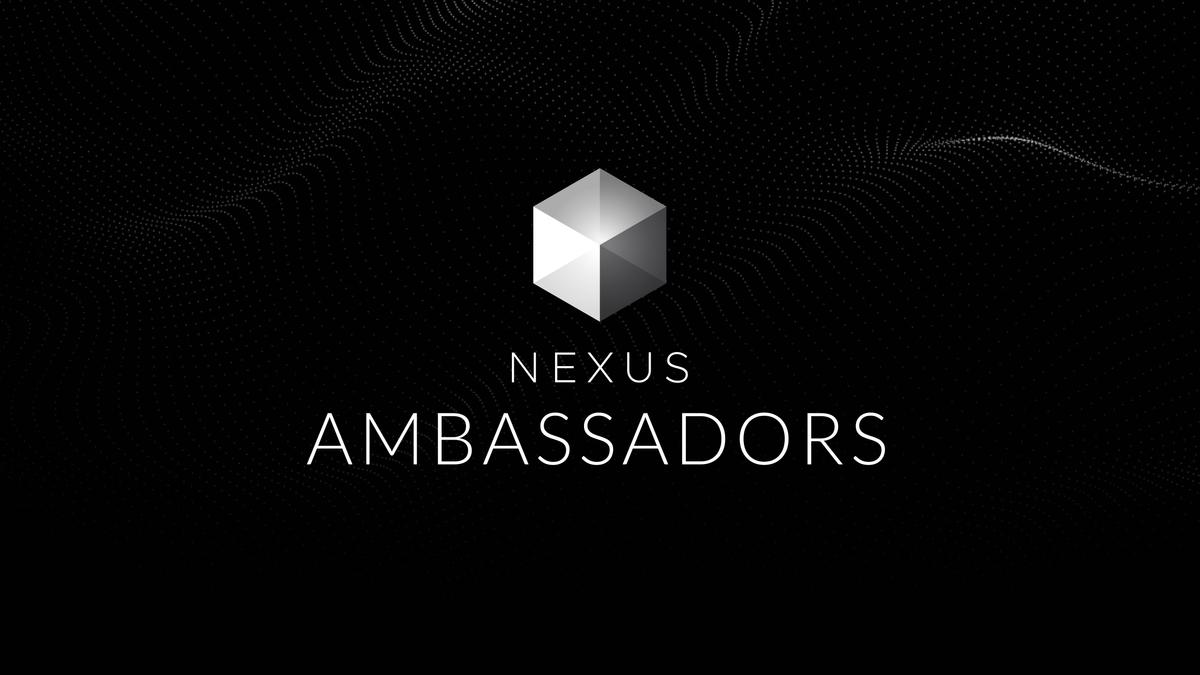USDX, Powered by M0: The Native Dollar of the Verifiable Economy
In today’s fragmented stablecoin landscape, many systems are either chasing liquidity or retrofitting incentives. Traders face operational complexity, developers

Welcome back to the Ambassador Spotlight series, where we will chat with Nexus Ambassadors from around the world to learn more about them and what brought them to the Nexus community.
Nexus Ambassadors are helping us build a vibrant and global Nexus community. Getting tapped as an influencer carries multiple responsibilities. Ambassadors help build the Nexus ecosystem through leadership, influence, and championing the concept of verifiable computation.
In previous spotlights, we chatted with @ABams01, @LolaSt1400, and @InfluencerDee about the web3 community in her part of the world.
In this Ambassador Spotlight, we are talking to @NameTr0uva1lle.

What pulled me in was the belief that real infrastructure should actually last. So much of the blockchain space feels either way overhyped or totally scattered. But Nexus was different – it had a grounded, thoughtful take on decentralization. It focused on real things like scalable computing, quantum resistance, and open access – not just chasing quick gains.
Coming from Ukraine, where things like resilience and independence aren't optional but a way of life, Nexus really hit home for me. It’s not just talking about change – it’s designed to make change happen. The more I learned about the tech the more I realized this was something way deeper than your average blockchain. It felt like a real shot at long-term, sustainable decentralization.
In Ukraine, web3 isn’t just a buzzword – it’s something we rely on. We’ve experienced what happens when centralized systems break down – banks shutting down, access to funds being frozen, information getting censored. So the idea of a global, trustless, censorship-resistant computing network really hits home.
What makes Nexus stand out is how it spreads out computation – it’s not just a few validators or some centralized rollups doing the work. Everything is distributed, cryptographically verified, and built to scale across the board. That’s the kind of setup a place like Ukraine could actually build on top of – not just use temporarily.
The focus on quantum resistance is another big one. We’ve got a lot of math and cryptography talent here, and people are starting to look ahead, thinking long-term. Nexus aligns with that way of thinking – it’s not just about solving today’s problems, it’s about getting ready for what’s next.
It’s come a long way, but there’s still so much untapped potential. Before 2020, most people here were into crypto for trading or mining. But over the past few years – especially during the war – it’s started to mean a lot more. Crypto showed it could be useful when traditional systems didn’t work.
That said, we’re still far from mainstream adoption. Most people aren’t using crypto in everyday life yet. But the potential is huge – especially with how much engineering talent we have and the growing interest in building real products. More devs are getting into the space not just to earn, but to create. We’re seeing Ukrainian teams explore everything from new protocols and zk tech to NFTs and tools for L2s.
Web3 is becoming a space where people here can build globally, work independently, and have an actual impact. And even though it’s early, the direction is clear – the ecosystem’s shifting from passive to active, from users to builders.
Even with everything going on – war, blackouts, and constant uncertainty – Ukraine’s web3 community stays deeply connected to the global space. We’ve got content creators, moderators, community managers, translators, and all kinds of contributors helping push things forward.
People are running local hackathons with global support, managing busy Telegram groups, translating docs, creating videos, writing articles – even organizing in-person meetups in cities like Kyiv, Lviv and etc. Sometimes there’s no power or internet, but the momentum never stops.
And it goes both ways. The global web3 world sees Ukraine as a place where real grassroots energy and resilience live side by side. That’s where Nexus can really plug in – not just by offering tech, but by supporting the kind of community that can grow something powerful from the ground up and take it worldwide.
My biggest advice? Don’t wait. Jump in. Join a Discord, make memes, start chatting, translate a doc – just start somewhere. Every project in web3 needs contributors, and the people who show up and help out are the ones who get noticed.
Young Ukrainians already understand what decentralization means - not in theory, but in real life. The key is turning that understanding into action. Web3 doesn’t care about diplomas or job titles – it cares about what you do.
And Nexus is a great entry point. It’s early, it values real engagement, and it gives people the chance to shape the future of the protocol. Whether you're into coding, writing, design, education – there’s space for everyone to contribute.
For young people in Ukraine, that’s not just a way to break into tech. It’s a way to gain real freedom – to build, learn, earn, and be part of a global movement that values your work, not where you’re from.